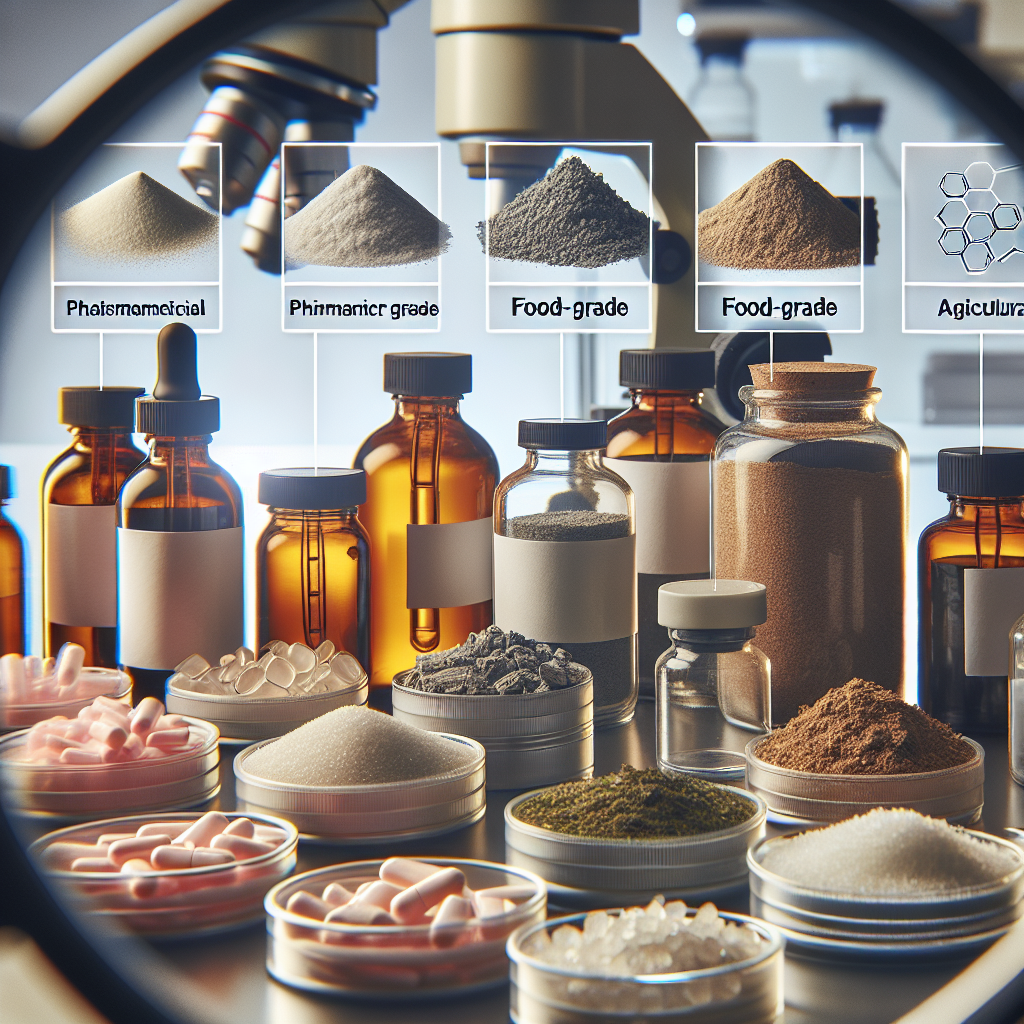In the high-stakes world of dietary supplements, raw material standards represent the critical foundation upon which product quality, consumer safety, and regulatory compliance are built. Even well-intentioned supplement companies with seemingly robust operations can find themselves facing catastrophic consequences after an FDA inspection reveals deficiencies in their raw material handling practices. The difference between compliance and non-compliance isn’t just paperwork—it can mean the difference between business prosperity and complete shutdown.
Every year, hundreds of supplement manufacturers face the scrutiny of FDA inspectors who meticulously examine their facilities, documentation, and quality control systems. In fiscal year 2024 alone, the FDA conducted approximately 600 inspections of dietary supplement facilities, with raw material standard violations consistently ranking among the top observations. These inspections aren’t merely formalities; they’re comprehensive evaluations that can expose weaknesses in your raw material standards that you might not even realize exist.
The Regulatory Framework: Not Food, Not Drug, But Definitely Regulated
The dietary supplement industry operates within a unique regulatory framework. Unlike conventional foods or pharmaceutical drugs, supplements follow distinct compliance pathways outlined primarily in the Dietary Supplement Health and Education Act (DSHEA) and the current Good Manufacturing Practices (cGMPs) detailed in 21 CFR Part 111. This specialized regulatory approach reflects the unique position supplements occupy in the marketplace—not quite food, not quite drug, but carrying significant implications for consumer health.
The FDA’s authority in this space is substantial. While supplements don’t require pre-market approval like pharmaceuticals, manufacturers bear the heavy responsibility of ensuring their products are safe and properly labeled before reaching consumers. The FDA can—and regularly does—take enforcement action against companies marketing adulterated or misbranded products. These actions range from warning letters to product seizures and facility shutdowns.
When it comes to raw material standards specifically, FDA inspectors examine several critical elements:
- Identity testing protocols to confirm ingredients are what they claim to be
- Purity assessments to verify the absence of contaminants
- Potency verification to ensure active ingredients meet label claims
- Documentation systems that track every stage of the ingredient lifecycle
A failure in any of these areas can trigger enforcement actions that jeopardize your entire operation.
Raw Material Specifications: The Foundation of Risk Mitigation
Developing and adhering to comprehensive raw material specifications is not just a regulatory checkbox—it’s a fundamental risk mitigation strategy essential for long-term business success. These specifications serve as the blueprint for quality control, establishing the parameters that every incoming ingredient must meet before entering your production process.
Effective raw material standards address three primary concerns:
Contamination Prevention: Rigorous testing for microbiological, chemical, and physical contaminants that could compromise product safety. For example, heavy metal testing has become increasingly critical as global supply chains introduce variables in soil quality and environmental conditions where botanical ingredients are grown.
Variability Control: Natural ingredients can vary significantly from batch to batch based on growing conditions, harvesting practices, and processing methods. Standardized specifications ensure that despite these natural variations, the active compounds remain consistent.
Quality Assurance: Beyond safety, specifications ensure that ingredients deliver the expected functional benefits that consumers seek. This includes appearance, solubility, stability, and bioavailability characteristics.
Without robust raw material standards, manufacturing consistency becomes impossible. When every production run uses ingredients of varying quality, consumers experience unpredictable results, eroding trust and potentially creating safety risks. “The consistency of your finished product can only be as good as the consistency of your raw materials,” notes a recent FDA guidance document on dietary supplement manufacturing.
FDA Guidance: Following the Roadmap to Compliance
The FDA provides numerous guidance documents designed to help supplement manufacturers navigate the complex landscape of regulatory compliance. These documents, while technically nonbinding recommendations, effectively serve as roadmaps for meeting FDA expectations and avoiding costly violations.
Key guidance documents addressing raw material standards include:
- “Current Good Manufacturing Practice in Manufacturing, Packaging, Labeling, or Holding Operations for Dietary Supplements”
- “Dietary Supplements: New Dietary Ingredient Notifications and Related Issues”
- “Guidance for Industry: Factors that Distinguish Liquid Dietary Supplements from Beverages”
These guidance documents clarify that every incoming raw material must undergo identity verification at minimum, with additional testing determined by risk assessment. They emphasize that relying solely on supplier certificates of analysis without conducting your own verification testing is insufficient for regulatory compliance.
What makes these guidance documents particularly valuable is their insight into the FDA’s current thinking on compliance issues. By aligning your raw material standards with these recommendations, you position your company to meet not just the letter of the law but also the agency’s interpretation of proper compliance practices.
Risk Management: Beyond Compliance to Strategic Advantage
Forward-thinking supplement manufacturers recognize that robust raw material standards aren’t merely about avoiding regulatory penalties—they represent a strategic approach to risk management that can become a competitive advantage. By implementing comprehensive risk management practices for raw materials, companies can simultaneously achieve regulatory approval while enhancing their product reliability.
Effective risk management includes:
Supplier Qualification Programs: Thoroughly vetting suppliers before establishing business relationships, including on-site audits, quality system reviews, and performance history evaluations.
Incoming Material Inspection: Visual examinations, organoleptic testing, and analytical verification before accepting raw materials into inventory.
Stability Testing: Evaluating how ingredients perform over time under various environmental conditions to establish appropriate shelf-life parameters.
Traceability Systems: Maintaining comprehensive documentation that can trace any ingredient back to its source or forward to finished products in case of quality issues.
As one quality assurance director at a leading supplement manufacturer stated, “Our risk management approach to raw material standards has prevented at least three potentially disastrous situations in the past year alone. The investment in these systems pays for itself many times over when you consider the alternative.”
Navigating Compliance Barriers in the American Regulatory Landscape
Despite clear guidelines, many supplement manufacturers struggle with raw material standard compliance due to structural challenges within the American regulatory framework. These barriers complicate adherence even for companies committed to quality:
Resource Constraints: Smaller manufacturers often lack the sophisticated laboratories and technical expertise needed for comprehensive raw material testing, creating a compliance gap between industry leaders and smaller innovators.
Evolving Scientific Understanding: As analytical methods become more sensitive and scientific knowledge about ingredients expands, compliance standards effectively become more stringent without formal regulatory changes.
Global Supply Chain Complexity: With ingredients sourced worldwide, manufacturers must navigate inconsistent quality standards, documentation practices, and regulatory requirements across multiple jurisdictions.
Novel Ingredient Challenges: Innovative supplement manufacturers introducing new ingredients face additional hurdles in establishing appropriate raw material standards without established precedents.
These barriers don’t excuse non-compliance but understanding them helps companies develop strategic approaches to overcome them. Industry collaboration, shared testing resources, and engagement with regulatory agencies can help bridge these gaps while maintaining the innovation that drives the supplement industry forward.
Building Consumer Trust Through Strict Compliance
In today’s information-rich marketplace, consumers are increasingly aware of quality issues in the supplement industry. High-profile recalls, negative media coverage, and public FDA warning letters have created a more discerning consumer base that demands transparency and quality assurance. Strict compliance with raw material standards directly translates to consumer trust and market confidence.
This consumer expectation aligns perfectly with NutraAeon’s philosophy of quality, transparency, and empowerment. By maintaining rigorous raw material standards that meet or exceed regulatory requirements, manufacturers demonstrate their commitment to consumer safety and product efficacy. This commitment becomes a powerful marketing advantage in an increasingly competitive marketplace.
One recent consumer survey found that 78% of supplement users consider manufacturing quality and ingredient testing as “extremely important” factors in their purchasing decisions. This statistic highlights how compliance isn’t just about avoiding FDA penalties—it’s about meeting consumer expectations that directly impact your bottom line.
Continuous Improvement: Adapting to Evolving Standards
The landscape of raw material standards isn’t static—it continuously evolves as scientific understanding advances, analytical capabilities improve, and regulatory priorities shift. Forward-thinking manufacturers embrace continuous improvement practices that allow them to stay ahead of these changes rather than scrambling to catch up when regulations tighten.
Continuous improvement in raw material standards includes:
- Regular review and enhancement of specification requirements
- Ongoing supplier evaluation and development programs
- Investment in emerging analytical technologies
- Active participation in industry standards organizations
- Monitoring regulatory developments in global markets
By embracing continuous improvement, manufacturers not only remain compliant with current regulations but position themselves to adapt smoothly to future changes. This proactive approach prevents the “compliance firefighting” that many companies experience when regulatory expectations shift suddenly.
Partnering for Success in Raw Material Standard Excellence
Maintaining exceptional raw material standards in today’s complex regulatory environment requires more than just internal resources—it demands strategic partnerships with organizations that specialize in nutritional ingredient sourcing and quality assurance. This is where NutraAeon’s role as a trusted global partner becomes invaluable to forward-thinking supplement manufacturers.
NutraAeon bridges the critical gap between global ingredient excellence and manufacturers seeking premium-quality raw materials that meet strict regulatory requirements. Through comprehensive supply networks and rigorous quality standards that exceed USP and FDA expectations, NutraAeon provides the foundation manufacturers need to create exceptional products while minimizing regulatory risks.
With complete documentation, certificates of analysis, and full supply chain visibility from source to delivery, NutraAeon embodies the transparency that both regulators and consumers demand. This commitment to quality and transparency empowers manufacturers to focus on innovation and market development while having confidence in their raw material standards.
The question isn’t whether your supplement company will face FDA inspection—it’s whether you’ll be prepared when that inspection inevitably occurs. By partnering with quality-focused ingredient suppliers and implementing robust raw material standards, you transform potential regulatory nightmares into opportunities to demonstrate your commitment to excellence.
Is your supplement company one FDA inspection away from disaster? With proper raw material standards in place, the answer should be a confident “no.”


